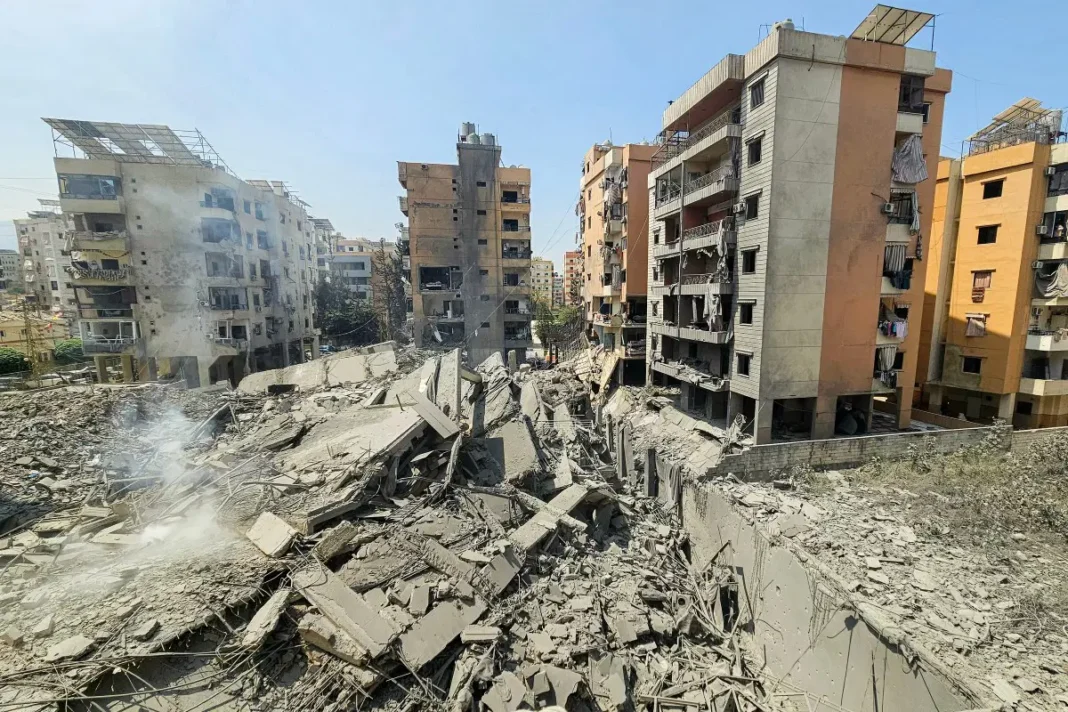Israel-Iran War Sends Shockwaves Across the Globe as Regional Stability Hangs in the Balance
The escalating war between Israel and Iran has plunged the Middle East into one of its most dangerous periods in decades, with widespread implications reverberating far beyond the region.
What began as a series of missile exchanges and targeted strikes has morphed into full-scale hostilities, leaving hundreds dead, cities damaged, and the threat of broader conflict looming large.
Analysts are warning that the war, if not contained soon, could trigger long-term instability not only in the Middle East but across the global economy and international diplomatic landscape.
In Israel, major cities like Tel Aviv, Haifa, and Ashdod have come under heavy bombardment from Iranian missile strikes.
Civilian casualties continue to mount, and widespread destruction of residential and commercial infrastructure has prompted mass evacuations.
Hospitals are overwhelmed, and emergency services are struggling to manage the scale of the humanitarian crisis.
The Israeli government has declared a state of emergency and has mobilized significant military resources in retaliation, launching extensive airstrikes on Iranian military targets.
Iran, for its part, has suffered significant damage to key infrastructure, including missile depots, nuclear-related facilities, and military bases.
Israeli precision strikes have reportedly killed high-ranking Iranian military officials, prompting Tehran to vow a forceful and sustained response.
Iran’s Supreme Leader and top military commanders have framed the conflict as a defense of national sovereignty, rallying domestic support for an extended engagement.
However, the country now faces international scrutiny, potential economic sanctions, and growing domestic economic stress.
One of the most critical global implications of the conflict lies in its impact on oil markets.
The Strait of Hormuz, through which roughly 20% of the world’s daily oil supply passes, has become a strategic flashpoint.
Iran has threatened to disrupt shipping through the narrow waterway, causing global concern. Even without a formal blockade, tensions in the area have already sent oil prices soaring.
Brent crude is now trading above $74 per barrel, and some analysts predict it could climb past $85 if hostilities intensify or shipping lanes are restricted.
This spike in energy prices is having a domino effect on global economies.
Countries heavily dependent on oil imports, including many in Africa and Asia, are facing increased transportation and production costs.
Inflation is accelerating, squeezing consumer spending and raising the cost of living.
Central banks in various regions, already cautious due to lingering post-pandemic vulnerabilities, now face the dual challenge of curbing inflation without derailing fragile economic recoveries.
READ MORE: Israel-Iran Conflict Triggers Oil Price Surge as Petrol Costs Climb in Nigeria
In Nigeria, where petrol prices are directly linked to international oil markets, the effects have been immediate.
Marketers have hiked pump prices in response to the rising crude costs, with petrol now selling for over ₦617 per litre on average.
The rise in fuel prices has sparked a chain reaction: higher transportation fares, increased food costs, and general inflationary pressure on everyday goods and services.
With no fuel subsidy mechanism currently in place, Nigerian households are bearing the brunt of this global crisis.
Geopolitically, the war is redrawing alliances and reshaping foreign policy priorities.
The United States has reaffirmed its staunch support for Israel while attempting to prevent the conflict from spreading across the region.
China, with significant strategic and energy investments in Iran, is closely watching the situation, concerned about long-term disruptions to its Belt and Road Initiative and energy security.
Russia, already entangled in its own geopolitical challenges, has called for restraint while subtly signaling support for Tehran.
The broader Middle East remains on edge, with nations like Saudi Arabia, the UAE, and Lebanon monitoring developments closely.
Many fear the conflict could expand into a wider regional war, drawing in proxy forces and escalating sectarian tensions.
Diplomatic efforts led by the United Nations and other global actors have so far failed to secure a meaningful ceasefire.
As the war rages on, its human, economic, and political costs continue to rise, leaving the international community anxious for a breakthrough that could bring peace and avert a deeper global crisis.




